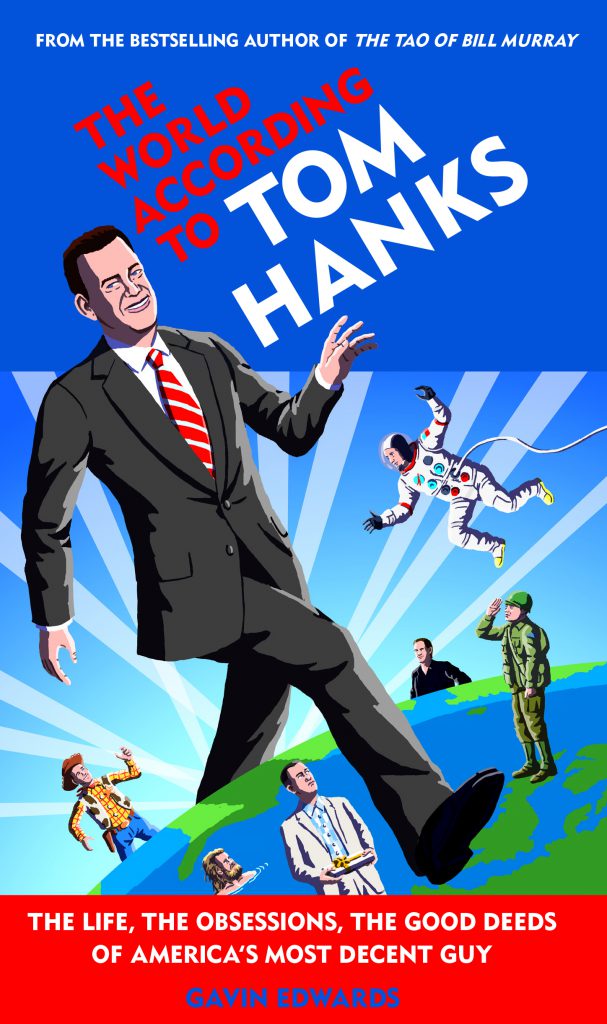Tom Hanks, the Pandemic, and Us
Tom Hanks likes to populate his Instagram with photos of single gloves: one lonely half of a pair, lost on the ground, an object poignantly seeking a partner. But a few weeks ago, the glove he photographed was surgical latex, and it came with a medical report: Hanks and his wife Rita Wilson had suffered from some chills and fevers, and so, “To play things right, as is needed in the world right now, we were tested for the Coronavirus, and were found to be positive.”
In the United States today, everything seems more tangible when it happens to celebrities and sports teams, and for many Americans, the one-two punch that first convinced them that Covid-19 was a real threat was the NBA shutting down and the news that Hanks was infected. (He’s always been a positive guy, but this was a bit much.)

Being the first ailing A-lister was more accident than accomplishment, of course. He was filming an Elvis Presley movie (Hanks is playing Colonel Tom Parker), directed by Baz Luhrmann in Australia—a country doing much better than the United States with its Covid-19 testing regime. He handled his pioneer status like the level-headed role model that he is; he and Wilson, he declared, “will be tested, observed, and isolated for as long as public health and safety requires. Not much more to it than a one-day-at-a-time approach, no?”
Hanks was also ahead of the curve in coming out on the other side of Covid-19—he and Wilson were released from the hospital in favor of self-quarantining lots of gin rummy—and as we saw when he hosted the stay-at-home edition of Saturday Night Live, a pioneer in having an unflattering quarantine haircut.
When he was younger, figuring out who he was as an actor and as a human being, Hanks used to waste a lot of energy. On a movie set, he’d get into character, achieve a camera-ready white-hot emotional intensity, and then bounce off the walls of his trailer, trying to sustain his peak energy as one hour of waiting extended into three or four.
“You attack and it’s finally done and you’re spent and going, ‘I can’t keep doing this to myself,'” he said in 1996. “Now it’s a matter of, ‘Look, I’ve done the work, I understand that when the time comes it’s going to be alright.’ In the same way that I’m aware that if the kid has a bloody nose, there’s an easy way of taking care of it, as opposed to (high-pitched scream) ‘Oh my god, he’s got a bloody nose!'”
Hanks isn’t just admirably calm in a crisis, he believes in the American ideals of overcoming seemingly insurmountable obstacles through hard work, shared sacrifice, and collective effort—the values that won World War II and put astronauts on the moon. (And not coincidentally, the values that get motion pictures made.)
The movie in his filmography that best captures this moment is 1995’s Apollo 13. The movie, directed by Ron Howard, is about a moon mission that suffered from a technical failure and barely got back to Earth. In the Apollo capsule, the three astronauts were wedged into tight quarters, socially distancing themselves from Earth to the tune of a couple of hundred thousand miles. In the movie’s most thrilling scene, a room of NASA patched together a design for a replacement air filter; technical expertise counts for a lot when you’re flying a spacecraft or fighting a virus.
This pandemic will reshape the American landscape in ways we can’t fully imagine yet, killing people and businesses and school years. But most of the American people have acted more responsibly and seriously than their leaders in the federal government. Hanks isn’t a lonely man reminding Americans of their best traditions; he’s reflecting the decisions that millions of his fellow citizens have been making without the counsel of movie stars.
We choose the myths we believe in, we choose the stories we tell ourselves about America, we choose the celebrities we want to listen to—and we chose well in making Hanks our national conscience. “We are all in this together,” Hanks wrote after one week of being alone on the other side of the world, and it was never truer. “Flatten the curve.”
(For more of my writing on Tom Hanks, check out my book The World According to Tom Hanks: The Life, the Obsessions, the Good Deeds of America’s Most Decent Guy. Help keep your local bookstore in business!)
posted 22 April 2020 in Articles and tagged pandemic, Tom Hanks, us. 1 comment



April 23rd, 2020 at 10:35 pm
I really enjoyed reading your thoughtful and very insightful book about the actor most assuming the nice guy mould or as the modern Jimmy Stewart, although I have personally felt he was more Henry Fonds than the great Jimmy Stewart. I really enjoyed learning a little more about Tom Hank so many thanks from a lifelong admirer and supporter of Tom